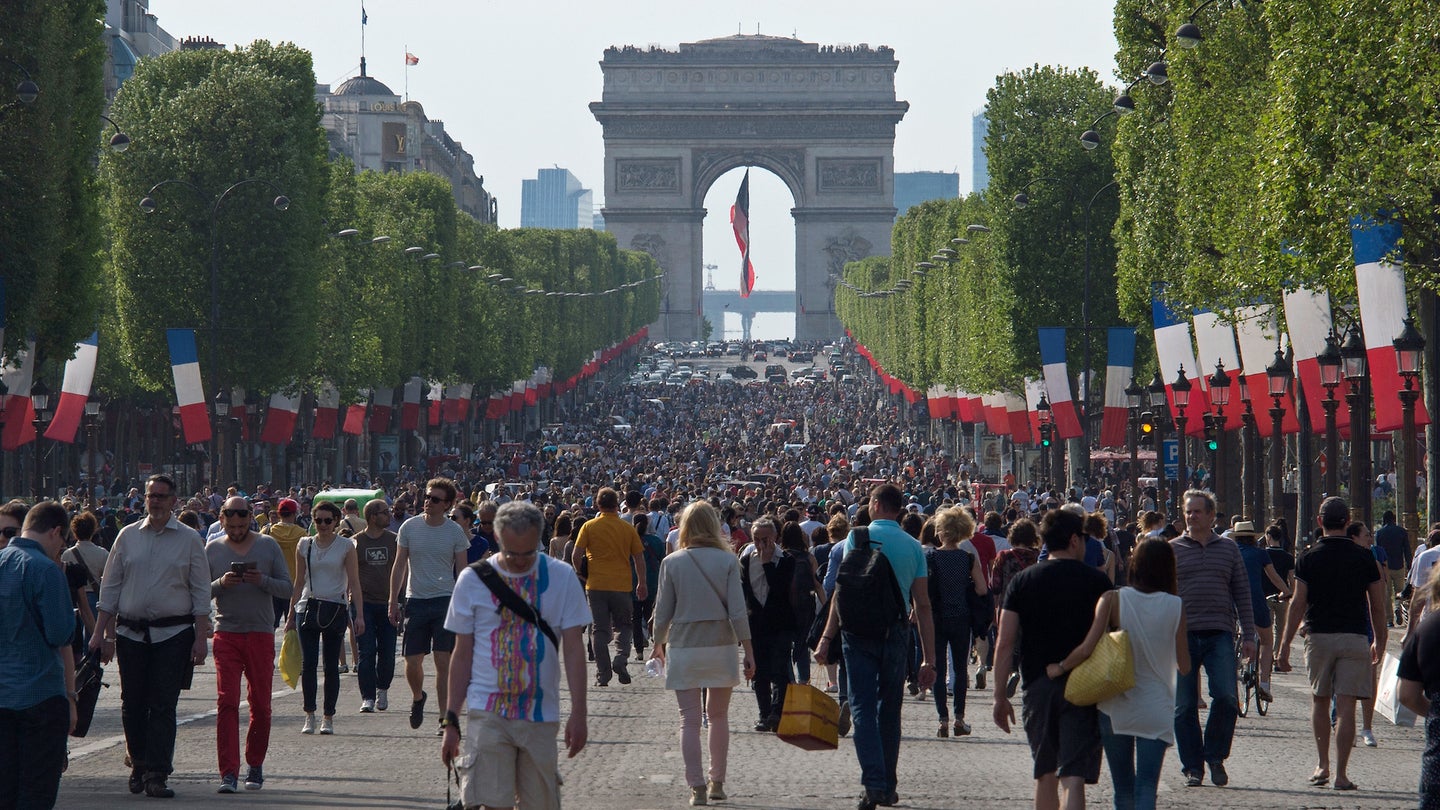The Mayors of Paris and Brussels Urge European Leaders to Join Annual Car-Free Day
Last year, noise pollution in Paris dropped by 20 percent.

Paris Mayor Anne Hidalgo and Brussels Mayor Philippe Close issued a joint statement coinciding with the two cities’ annual car-free day on Sunday. The city officials asked other European leaders to understand “the urgency of climate issues and the health impact of pollution” and hold car-free days in their cities as well, France 24 reports.
The two capitals held this year’s car-free day to coincide with the continent’s European Heritage Days, which is an annual celebratory, event-laden weekend in countries throughout the region. In case you’re curious what a car-free Paris might be like, look no further than the country’s official Twitter account, which publicly propped the event up with the #CarFreeDays hashtag.
Brussels, meanwhile, used Waterloo Boulevard as a picnic area and turned the Poelaert Square into a dance floor. With skateboarding, bicycle, and BMX courses for children and teenagers set up, as well as tightrope, trail bike, rollerblading and slackline events. Belgium really took advantage of its car-free day by not merely removing automobiles from its streets, but launching a whole roster of exciting, athletic activities.
Paris organized outdoor markets and a variety of rollerblading, longboarding, bicycle courses, and events as well, with the Place de la Concorde transforming from one of the city’s busiest intersections to a quiet, car-free picnic area. While walking around a major capital city in 2018 without seeing a single car being driven around is probably a beautiful way to ponder the human impact on climate change, it isn’t just the freedom of mobility that enthralls participants so strongly, but the sheer and utter silence in the air.
Bruitparif, which monitors noise pollution, recorded a 20 percent decrease during Paris’ car-free day in 2017, with this year’s detailed findings freely available here. Notable decrease in emissions pollution, of course, is another factor being studied on car-free day each year. Airparif, which monitors air quality, recorded a 25 percent decrease in nitrogen oxide—which can cause acid rain and respiratory system issues—in Paris last year. Their findings will be published online Wednesday.
Car-free day also happened to coincide with this year’s European Mobility Week, which aims to raise awareness about our collective emissions and provide sustainable options and alternatives. On Friday, Hidalgo announced that the first four arrondissements in the city would be entirely closed off to vehicles on one Sunday per month starting Oct. 7. Last year, Paris announced a ban on diesel cars, effective starting in 2024.
As an incentive, France offers $5,136 (6,000 euros) subsidies to anyone willing to trade their diesel cars in for a cleaner alternative. In case you’re wondering just how effective any of these initiatives actually are, car use inside Paris has dropped by a whopping 45 percent since 1990. In the past year, Paris reported a “record” six percent decrease in automobile traffic, with air pollution dropping “by a similar proportion.”
Imposing tariffs and educating the public on what their behavior does to the climate is a proven way to create change, as evident by Paris’ strategic political moves in the past few decades.
